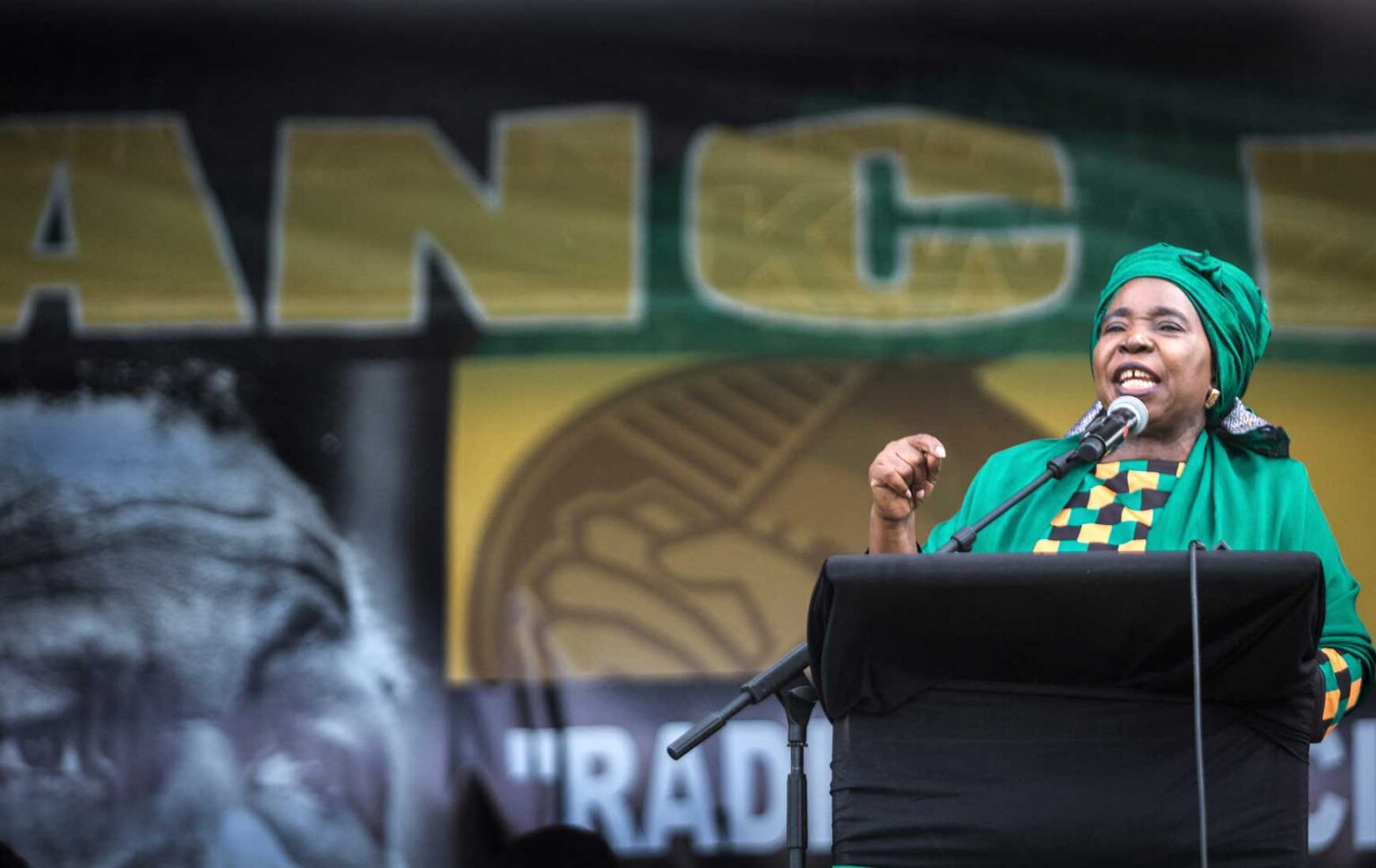The line between the ruling party and the state is constantly debated in South Africa, and a clear distinction cannot always be drawn. Political parties have the existential objective of governing. In democracies, it is achieved through electoral contestation and victory. Key to the debate about the relationship between the party and state is how single-party dominance often leads to a lack of accountability, abuse of power, and, inevitably, corruption.
Corruption, i.e., dishonest or fraudulent conduct by those in political power and through forms and acts of rent-seeking and patronage, has had its roots firmly embedded in the social fabric as a feature of South Africa for more than 372 years. Since the advent of democracy in 1994, the African National Congress (ANC) has enjoyed the majority’s will throughout six national elections. Thirty years of democracy is a timely opportunity to assess the governing party’s attitude towards corruption.
South Africa is contending with alarmingly high levels of corruption. Daily, the news media is replete with detailed stories of leaders’ corruption at all levels of society, reaching the highest levels of politics and government. In the public sector, it is commonly manifested through maladministration, manipulation of procurement processes, rent-seeking, and abuse of public authority. Worryingly, there is a perception that corruption is increasing; according to the 2023 Afrobarometer survey, 82% of surveyed South Africans said corruption in the country increased “somewhat” or “a lot” during the year preceding the survey, up 10% percentage points from the previous study in 2021. This perception was confirmed in January this year when South Africa received its lowest-ever score on Transparency International’s Corruption Perceptions Index (CPI) report, the world’s leading indicator of public sector corruption. With a 41 out of 100 score, South Africa ranked 72 out of 180 countries.
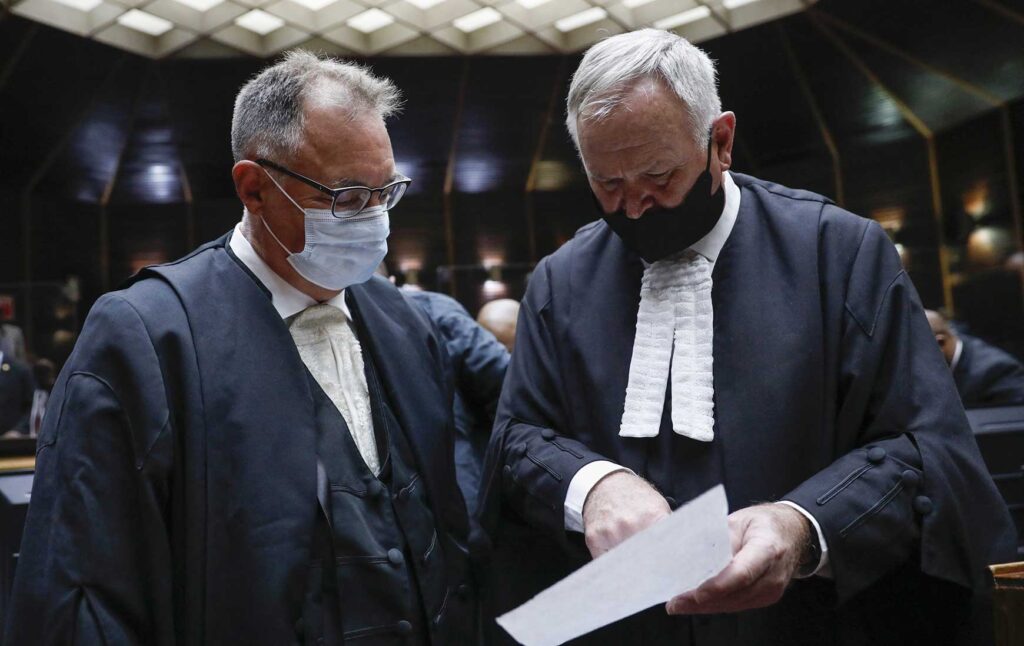
Public sector corruption occurs when public resources are used to advance personal and political interests. Not only does it have a severe impact on the economy by increasing the cost of doing business, but it also discourages potential investment and job creation, leading to a decline. Corruption also severely impacts governance in general and the delivery of quality public goods and services. For the electorate, it is the antithesis of democracy and the fundamental values that underlie the South African Constitution. Yet, it is a crime for which only very few people have been held accountable.
Fresh from its historic 1994 electoral victory, the young ANC government enjoyed global stature and held moral authority for its commitment to the reconciliation project and embrace of democracy and universal human rights. Yet the first set of corruption scandals to test the parties happened shortly after 1995, with the Sarafina musical. Dr Nkosazana Dlamini-Zuma, then serving as health minister, awarded a R14.27 million (almost R60 million today) contract to a personal friend for the production of a musical on HIV/AIDS without following the required tender procedures, which also never materialised. In response, the party closed ranks in defence of their comrades. President Nelson Mandela lashed out at the media for “creating such an uproar” and said Zuma should be left alone to do her job. It was the first check of the party’s record of handling corruption and misconduct.
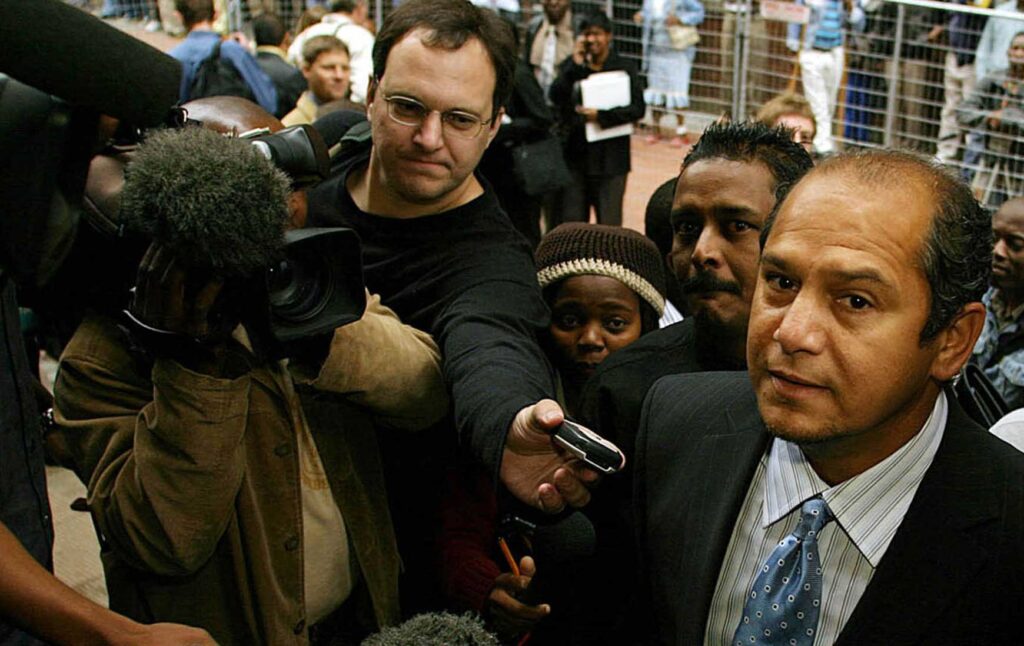
That period also included the dismissal of senior party leader General Bantu Holomisa for blowing the lid off a scandal involving another minister, Stella Sigcau, for accepting bribes.
During the Thabo Mbeki era, the so-called Arms Deal was the first high-level corruption case. The South African government signed contracts with several European arms manufacturing companies to procure corvettes, submarines, and helicopters for the Navy and fighter planes, fighter trainers, and helicopters for the Air Force. Instead, the arms manufacturers, in concert with high-ranking politicians, manipulated the procurement process through pricing, decision-making, and selection. R30 billion worth of defence equipment was purchased in return for bribes for themselves and the governing party.
How the ANC handled the arms deal, perhaps a litmus test for democratic accountability, had a deleterious effect on South Africa’s political life. Yet, the only prosecution was of Tony Yengeni, the former ANC national executive committee member who chaired the country’s parliamentary defence committee at the time and only served four months of a four-year jail sentence after being found to have defrauded parliament over a discount he received on a Mercedes Benz through the deal.

The following years under Jacob Zuma are broadly defined by the notion of “State capture”, the period that saw the hollowing out and abuse of the state and the repurposing of state organs, parastatals, and their resources redirected for the personal and factional benefits of a network of individuals. The process was laid bare in a judicial commission of inquiry, where testimony and the consequent reports documented how the party was instrumental in the widespread corruption that had eaten into the state.
For one, an estimated R500 billion of public funds was looted through the process, and more than 90 senior members of the party occupying various positions of authority within government, state-owned enterprises, and private businesses were implicated. Yet, to date, only a few people have been successfully prosecuted, and the ANC is “prevaricating” on disciplining its functionaries who were complicit in state capture.
Following state capture, Cyril Ramaphosa was appointed on a renewal ticket and promised to arrest the rot. Yet, the COVID-19 pandemic, a crisis not of his own making, was telling, with devastating economic and social implications. On 21 April 2020, President Ramaphosa announced a R500 billion COVID-19 rescue package to protect jobs and wages, support businesses, and provide more significant social assistance.
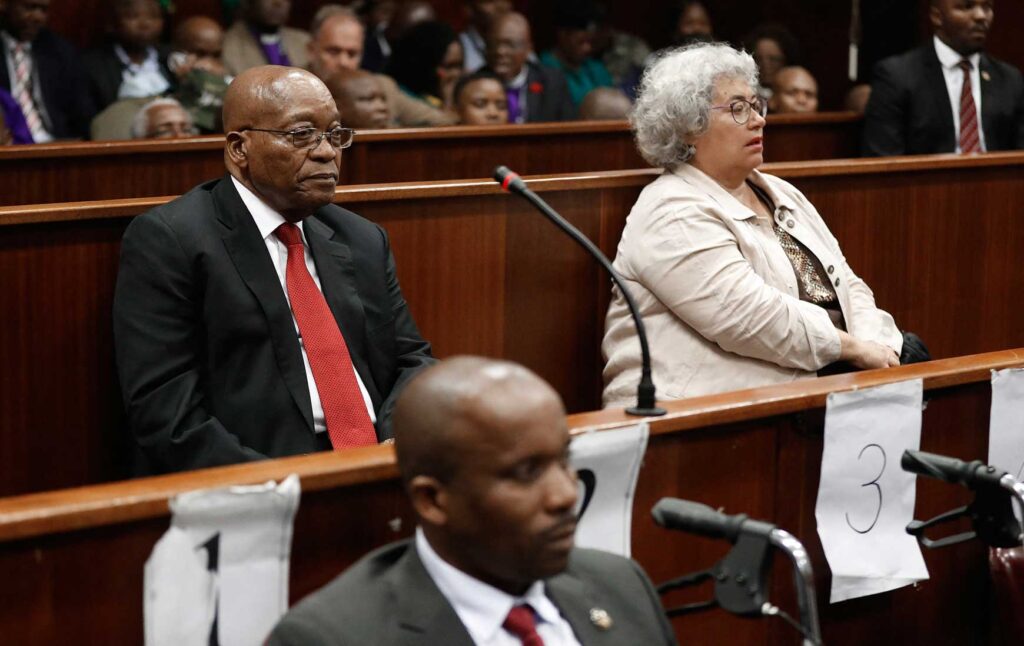
However, disbursement was marred by widespread corruption, with allegations and instances of fraudulent UIF claims, overpricing of goods and services, violations of emergency procurement regulations and collusion between officials and service providers, and the creation of fake non-profit organisations to access relief funding. There was even an abuse of food parcel distribution, including within ANC ranks. The seriousness of all these allegations prompted Ramaphosa to issue a proclamation that empowers the country’s Special Investigative Unit (SIU) to probe claims relating to the misuse of COVID-19 funds across all spheres of the state.
The prognosis? To some extent, the party and its maintenance have been placed at the apex for survival at all costs, resulting in limited accountability and, instead, institutionalising pervasive corruption. At different points at the helm, ANC leaders have placed the party before the Constitution and the country; Thabo Mbeki, Jacob Zuma, and Cyril Ramaphosa have all made statements that the ANC and its continuity are paramount. Similarly, this notion means that wrongdoing and corruption have not been called out at times.
This is vivid in parliament and ANC-controlled legislatures, where accountability and oversight are far more challenging to achieve. The party has, in instances, used majoritarianism to thwart legislative oversight processes and escape responsibility. Chief amongst examples of complicity are ANC MPs voting to dismantle the Scorpions unit in 2008, which dealt with priority crimes; the inquiry into Nkandla and Zuma’s use of state funds to upgrade his home; and recently, the vote to thwart investigations into the Phala Phala matter implicating President Ramaphosa. In all these cases, ANC MPs toed the party line, highlighting a failure to distinguish between the actual will of citizens and the interests of the party, leaving wrongdoing and corruption unabated.
The ANC has asserted that its headquarters, Luthuli House, is the strategic centre of power and has used cadre deployment policy to appoint its functionaries to key government positions in pursuit of its objectives. At the end of apartheid, this strategic deployment of party cadres helped the ANC assume control of the state and transform the public service to become less racialised and representative of the old minority. This practice was then used to consolidate its hold and to advance its policy mandates of transforming society.
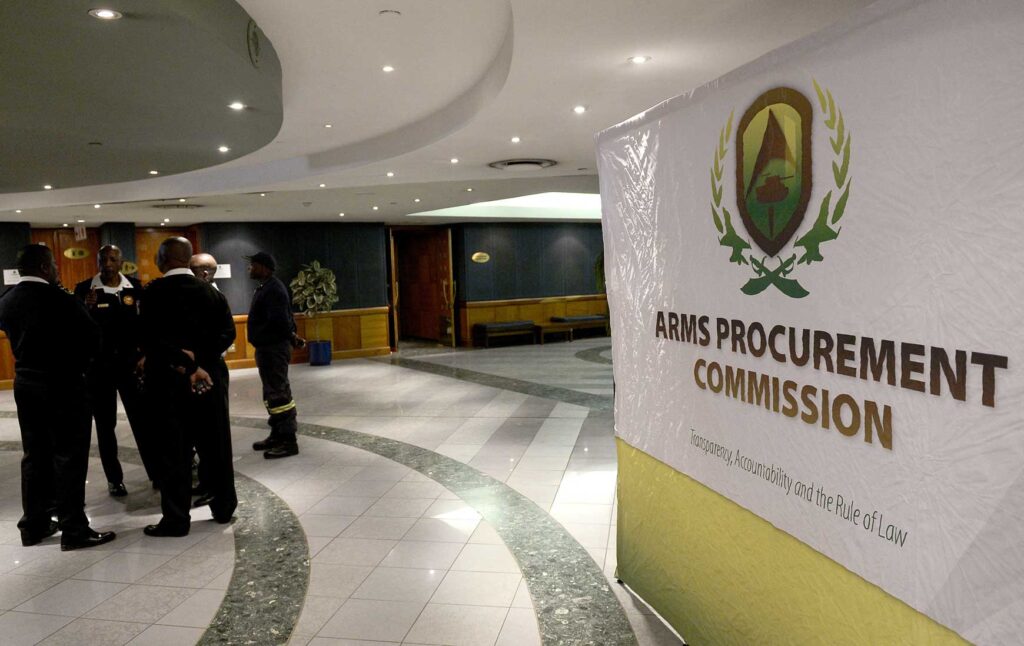
The practice of cadre deployment is not exclusive to the ANC; it is practised in many developed and developing democracies globally. However, the modalities of implementation are the challenge; not only has the practice been factionalised, but it has also been characterised by poor implementation and evaluation. The ANC has been found wanting in the implementation of a proper mechanism to enable the supervision of all deployed in the public sector, take stewardship towards corrective action, and entrench ethical conduct in their deployment. The solution, however, is to deploy an ethical professional class whose loyalty is to the national interest and development of the country.
Campaign funding is also arguably the root of evil. Doing politics is a financially costly exercise, often leading to corruption. Public financing of the Independent Electoral Commission and income from membership fees pales compared to the party’s financial needs. Chancellor House, the ANC’s investment arm and funding vehicle, has often been associated with opaque dealings. South Africa’s political cycle has resulted in the ANC being perpetually caught up in an election cycle and campaigning, both internally and externally.
For instance, in just the past five years, the party has had: the National and Provincial Elections in 2019, Local Government Elections in 2021, an internal electoral conference in 2022, and is currently gearing up for National and Provincial Elections in 2024. All of these are costly; for instance, for the 2019 elections, the ANC is believed to have spent about R1 billion on their election campaign; for the very same period, the opposition Democratic Alliance (DA) declared that it spent half that figure, at R500 million.
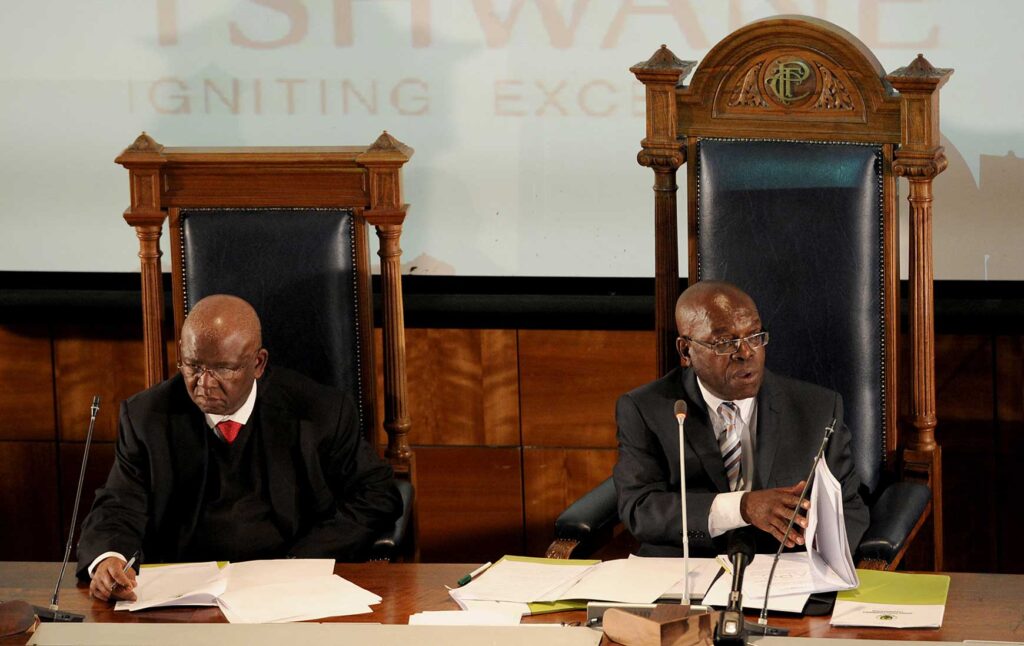
In response to this issue, the Political Party Funding Act (the PPFA) was implemented to regulate campaign donations and expenditures to political parties by imposing various limits and transparency requirements. Internal party polls are not a minor contest and are also a costly business. For example, in the ANC’s 2017 ANC electoral contest between Ramaphosa and Dlamini-Zuma, Ramaphosa’s presidential campaign cost R1 billion. Furthermore, state institutions and resources became weaponised in the same conference as detailed during the proceedings in the Zondo Commission; in that contest, human and monetary resources from the State Security Agency and the South African Police Service were used despite no apparent threats to law and order.
So, what is to be done? As South Africa heads towards all-important national and provincial elections, political parties must demonstrate genuine commitment to institutionalising ethical leadership among all party ranks to tackle corruption. Developing professional deployment systems can start by assessing the functioning and effectiveness of deployment committees and current cadre deployment policies and practices. This can include thorough membership vetting, effective pre-appointment processes, and strengthened integrity committees.
Secondly, they must demonstrate a commitment and implement policies to professionalise the public service with the appointment of competent administrative figureheads. Appointments must be depoliticised and awarded based on competence instead of party loyalty. It is important to implement and maintain a solid politico-administrative dividing wall to remedy the problem of politicisation and unequivocally prevent potential conflicts of interest from arising.
Within the state, it is important to address prolific procurement abuses through rigorous implementation of, and adherence to, supply chain management policies and procedures. This must include establishing a national anti-corruption agency and a statutory body that may guard against malfeasance in the interface between parties, government officials, private individuals, and businesses.
While South Africa has comprehensive anti-corruption laws and agencies, enforcement must be more adequate. The establishment of the long-awaited National Anti-Corruption Advisory Council was a necessary first step. However, supporting measures to strengthen the state’s criminal justice system, particularly law enforcement agencies, and the state’s detection, investigation, and prosecutorial arms will go a long way towards preventing and prosecuting corruption.

Stuart is an independent policy analyst. He holds a Master of Arts degree in Security and Strategic Studies from the University of Pretoria. Previously, he was a researcher in the governance delivery and impact programme at Good Governance Africa. Before joining Good Governance Africa, he was a junior research fellow with the Centre for Law and Society at the University of Cape Town. He also worked as a research consultant at the Institute of Security Studies.

